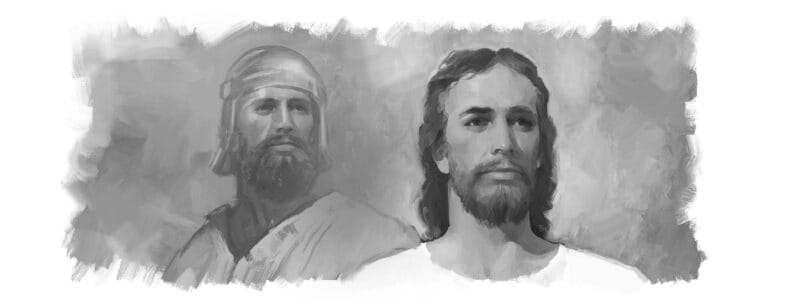 29 November 2025
29 November 2025
 Daniel – Strong in Faith. Faithful in the Fire
Daniel – Strong in Faith. Faithful in the Fire
Devotions from the life of a young man of conviction
 Introduction to the Series
Introduction to the Series
What we can learn from a young man in exile about faith, character, and steadfastness
 Daily Verse
Daily Verse
“But Daniel resolved in his heart that he would not defile himself …”
Daniel 1:8
──────────────── ────────────────
────────────────
 Introduction: When Faith Meets Character
Introduction: When Faith Meets Character
This world looks for talent.
God looks for faithfulness.
This world rewards impression.
God rewards conviction.
Daniel was not the son of a hero, not a prophet, not a warrior.
He was a young man – student, captive, foreigner.
Yet he carried something in his heart that not everyone had:
Identity. Conviction. Backbone faith.
He did not live in a religious society but in proud, pagan Babylon.
New language. New values. New gods. New name.
Everything was meant to shape him – yet he remained shaped by God.
His story shows us:
You don’t have to be powerful to influence.
You don’t have to be loud to stand firm.
You don’t have to be perfect to be faithful.
Daniel was quietly strong.
Dignified under pressure.
Faithful in the heat.
Unbroken in exile.
──────────────── ────────────────
────────────────
 Devotional
Devotional
Imagine being 15 or 16.
Life lying before you like a wide open field.
Dreams. Plans. Future.
So it was with Daniel.
Until the day everything collapsed.
Jerusalem’s gates fell, soldiers stormed his homeland, flames rose.
The sound of sacred songs was drowned in the clash of swords.
Daniel was taken away – bound, shaken, overwhelmed.
He stepped into a foreign land.
No temple. No sacrifice. No Sabbath.
Only the shining power of Babylon – loud, mighty, overwhelming.
They gave him a new name – Belteshazzar.
A name honoring idols, not God.
An attempt to sever his past, rewrite his identity.
Daniel lost much – but not himself.
In a palace of idols, at tables full of intrigue,
surrounded by feasts appealing to every sense,
Daniel made a quiet, decisive choice:
“I will not defile myself.”
Not defiant. Not rebellious.
Silent, but firm.
A pillar within that did not shake.
The first test came: food from the king’s table.
Delicate, rich, forbidden.
Daniel could have taken it – no one would know, no one judge.
But his heart had already chosen.
And so began a story that did not end in fire –
but shone in the fire.
The world tried to shape him.
But God shaped the world through him.
──────────────── ────────────────
────────────────
 Thoughts for Your Heart
Thoughts for Your Heart
Faith is not shown first in the lions’ den,
but in the small “no” that no one hears.
In the quiet “I will be faithful” when compromise would be easier.
──────────────── ────────────────
────────────────
 What We Can Learn from Daniel
What We Can Learn from Daniel
-
Steadfastness begins in secret.
-
One decision can shape your whole life.
-
Identity is stronger than environment.
-
You don’t need volume to burn with faith.
-
Faithfulness in little leads to victory in much.
──────────────── ────────────────
────────────────
 Practical Steps
Practical Steps
• Make one clear decision in a small matter today.
• Ask yourself: “Where is God drawing a line for me – and do I hold it?”
• Write one sentence summarizing your conviction.
──────────────── ────────────────
────────────────
 Questions for Reflection
Questions for Reflection
• Where am I tempted inwardly to compromise?
• Which values truly shape me – culture or God?
• What would my personal “I will not defile myself” be?
──────────────── ────────────────
────────────────
 Prayer
Prayer
Lord, give me a heart like Daniel – bold, quiet, yet firm.
A heart faithful when no one sees.
Faith that does not bend when the world presses.
Show me my line today.
Strengthen me to hold it with peace and conviction.
Amen.
──────────────── ────────────────
────────────────
 Key Thought of the Day
Key Thought of the Day
Faithfulness begins in the heart – not on the stage.
──────────────── ────────────────
────────────────
 Blessing
Blessing
May the Lord strengthen you from within.
May He give you clarity where to stand,
dedication to remain faithful,
and grace for your faith to burn bright in dark times.
May He bless you like Daniel – strong in faith, faithful in the fire.
──────────────── ────────────────
────────────────
LumenCorde | Daily light for a living soul.

 (
(